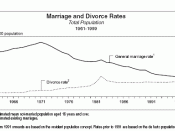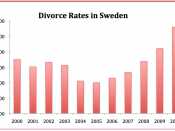Ironically not too long ago, "divorce" was forbidden, unaccepted, and considered as an act of sin among married couples. This situation has reversed in our contemporary world whereby the stigma once associated with divorce has eroded, while its massive effects on women and subsequently family life continues to grow at overwhelming proportions.
Divorce is one of the most painful and unwelcome public topics one can address in our modern world. When a marriage is not working and there is a break down in communication, common goals or trust, many times this will result in a divorce which can be a painful process, even more so if children are involved.
Since the turn of the century, the Western World has supposedly undergone not only an Industrial Revolution but also a Sexual Revolution which irreversibly altered the way in which the relations between men and women were perceived. In the early 1900's, the Industrial Revolution transformed societies from agrarian to urban, resulting in exclusive sex roles for men and women.
Fathers had more power in the working world, while mothers had more power in the child-rearing arena. As a result of these rigid roles, people today still believe that children belong with their mothers; that mothers are the real parent and the fathers are given a supporting role and visitation with their own children. Over the course of the twentieth century, the rate of divorce increased dramatically kicking off in the late 1960's, facilitated by federal legislations. It is now argued that the true nuclear family is literally becoming extinct. The idealistic image of the household being divided into public and private spheres has become a mythical belief.
The once so-called "traditional roles" for men and women during the industrialization and urbanization of the 20th century changed greatly. Women entered the work...


